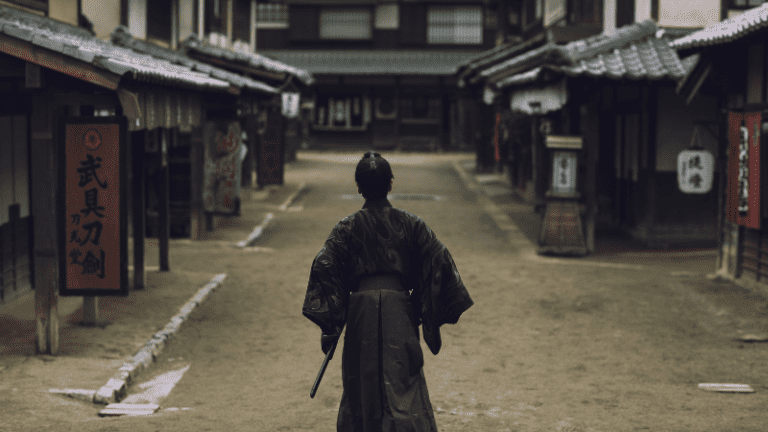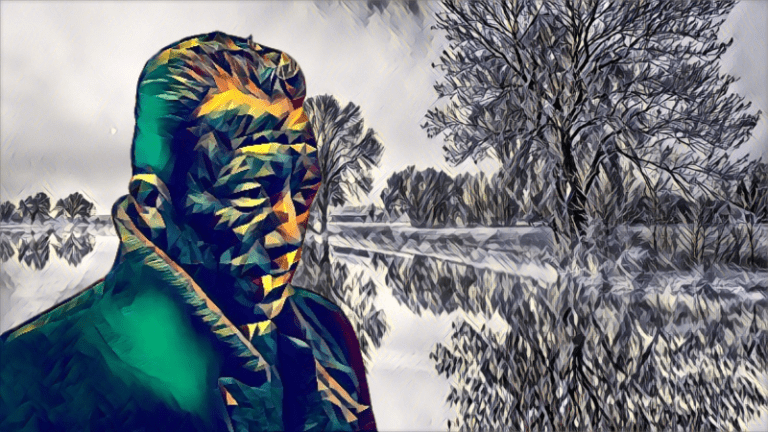The 5 Best Books for Daoism Beginners
If you're interested in Taoism, you're in luck! There are a number of great books on Taoism that are perfect reading material for beginners. In this blog post, we will introduce you to the five best books on Taoism for beginners. These books will help you better understand the philosophy of the great Dao and its many teachings. So without further ado, let's get started!
1. the Tao Te Ching
The Tao Te Ching (also Dao De Jing or Daode Jing) is one of the most popular and well-known books on Taoism. This book was written by Lao Tzu, the founder of Taoism, and is considered one of the most important texts in all of Taoist literature. In Tao Te Ching, Lao Tzu offers his insights and wisdom on a variety of topics ranging from politics to morality. If you are looking for a book that will give you a comprehensive introduction to Taoism, the Tao Te Ching is definitely the book for you.
You can buy the book here, but we've found that it also sounds great as an audiobook. For about 10USD you can get it (and if you're new to Audible, you can get it for free via this link).
The Tao Te Ching is a short text of about 5,000 Chinese characters in 81 short chapters or sections (章). There is some evidence that the chapter divisions were added later - for commentary and to aid memorization - and that it originally had more fluidly organized sections.
The chapters are divided into two parts: The Tao Ching (道經; chs. 1 to 37) and the Te Ching (德經; chs. 38 to 81).
The book uses short, declarative statements with intentional contradictions for memorable sentences and interesting wordplay throughout the book!
The writing style encourages different interpretations not only by its laconic tone but also by the absence of grammatical particles, allowing the speakers to put their own stamp on what is said without feeling left out.
Is that Tao Te Ching by Lao Tzu worth reading?
This is the most fundamental work of Taoist literature. Since the book has been sold and read millions of times and has influenced the culture of entire countries, it is considered to be well worth reading. The themes and philosophical concepts covered are known to help gain wisdom and a calm perspective on life.
We recommend reading it again and again over time. Why? Because A) repetition is the key to learning new things and B) because you will gain different perspectives and insights at different stages of your life.
2. taoism: the division of the way
If you want to learn about the history of Taoism, one of the best books is the Taoism: The Parting of the Way By Holmes Welch. This book provides a detailed and comprehensive look at the origins of Taoism in ancient China. Welch's book is an excellent resource for anyone who wants to learn more about Taoism and its role in Chinese history. It was first published in 1966.
The beauty of this book is that it focuses on a more objective view. This is in stark contrast to modern Taoist literature, which often focuses more on the mystical aspect - which in itself is not a bad thing, but it is very handy to have such a source (variety is key).
Is Taoism: The Parting of the Way worth reading?
Taoism: The Parting of the Way is a fantastic supplement if you are reading the Tao Te Ching for the first time, as it gives you context to many things.
3. the Tao of Pooh
If you want to take a slightly lighter look at Taoism, you should check out The Tao of Pooh By Benjamin Hoff View. This book uses the characters from A.A. Milne's Winnie-the-Pooh stories to explain the basic principles of Taoism. Hoff's book is great for teaching children about Taoist thought, and it's a lot of fun for adults, too.
Hoff begins with a scene showing a picture of the three great Eastern thinkers Confucius, Buddha and Laozi over a vat of vinegar. They are all tasting the vinegar of "life." Confucius finds it sour, Buddha finds it bitter, but Laozi, the traditional founder of Taoism, finds it satisfying. From there, the story unfolds to explain this analogy.
If you read carefully, you will see that Winnie-the Pooh is the embodiment of "Wu-Wei", the Taoist concept of "effortless doing", and also of "Pu", the concept of being open to but unencumbered by experience, and he is also a metaphor for natural human nature.
If you are interested in the idea of "Wu-Wei", you should our article read about this fascinating concept.
Hoff contrasts Pooh with characters like Rabbit and Owl, who overcomplicate problems. They often worry too much. Even to the point of confusion. Eeyore pessimistically complains and feels sorry for himself about existence itself because he is unable to be simple. Hoff cleverly uses Pooh's simple-minded nature, his simple worldview, and his practical problem-solving methods to playfully portray Taoist philosophy.
Is The Tao of Pooh worth reading?
You may have guessed it already: The Tao of Pooh is definitely worth reading. It is one of the simplest books on Taoism and its concepts. However, even though it is a great work, it is not a direct source like the Tao Te Ching and should therefore (at least in our opinion) only be read as a supplement.
4. Chuang Tzu (also called Zhuangzi)
The Chuang Tzu (sometimes called - especially in older versions - Zhuangzi) is a philosophical collection that embodies the philosophical principles and attitudes known in ancient China as "The Dao". In English, it is often translated as "The Way" - which is not 100%ig correct, but is the closest thing to it, since the Dao cannot be fully explained.
The stories show an appreciation for the natural moments of life, uniting self-cultivation with the cosmic order, maintaining separation from political obligations, and accepting death as one expects it in aging or illness - it doesn't matter if you are strong enough to handle these things! This also includes the advice not to cling too much to social values because they lead nowhere, but rather to embrace what is pleasant.
Zhuangzi, who wrote most of the book of the same name, believed that one attains true happiness by freeing oneself from the world and its norms. The best way to do this is through the Daoist principle of "inaction": Wu-Wei
Wu-Wei is one of the fundamental principles in Daoism. Therefore, we strongly recommend reading this article: Not wanting to force everything: Wu-Wei and other Far Eastern approaches
The book Chuang Tzu is divided into 33 chapters, which in turn are divided into three parts:
"Inner Chapters" (Nèi piān 內篇)-chapters 1-7
"Outer Chapters" (Wài piān 外篇)-chapter 8-22
"Miscellaneous Chapters" (Zá piān 雜篇)-chapters 23-33
Thus, it is divided into seven 'Inner' chapters written by the sage himself. And fifteen 'Outer' chapters and the 'Miscellaneous' are mainly the work of his later followers.
The chapter names in the book of Chuang Tzu are:
1 Hiking where you want
2 Work out everything evenly
3 Nourish life
4 On the road in the world
5 signs of true virtue
6 The great and original teacher
7 Dealing with emperors and kings
8 Spun toes
9 Horse hooves
10 Broken suitcases
11 Leaving the world open
12 Heaven and earth
13 The Tao of Heaven
14 Is the sky moving?
15 Rigid and arrogant
16 The deceived and the ignorant
17 Season of autumn floods
18 Perfect happiness
19 Understanding the meaning of life
20 The giant tree
21 Tien Zu Fang
22 The shores of the dark waters
23 Keng Sang Chu
24 Hsu Wu Kuei
25 The journey to Chu
26 Affected from the outside
27 Accepted words
28 Abdication
29 Robber Chih 261
30 The lover of swords
31 The old fisherman
32 Lieh Yu Kou
33 Ruling the world
Is Chuang Tzu worth reading?
Chuang Tzu is a great book to read. What makes it especially practical and beginner-friendly is that, just like the Tao Te Ching, it is divided into easily digestible sections. You can read one of the chapters every day or every few days. This makes for a very low barrier to entry.
5. Wen-Tzu: Understanding the Mysteries (Further Teachings of Lao Tzu)
Wen-Tzu - Understanding the Mysteries is another book containing the writings of the legendary founder of Daoism. The book Wen-Tzu, also known by the honorary title Understanding the Mysteries, is another classic and excellent for beginners. It was written more than two thousand years ago and covers the entire spectrum of classical Daoist thought and practice. Long neglected in the Western world, it is now a common read for people interested in Taoism.
The Wen-Tzu presents a view of Taoism that is quite different from previous accounts by Western scholars and more in line with Taoist ideas.
The compilation is attributed to a disciple of Lao Tzu and most parts are even attributed to Lao Tzu himself.
The introduction to the book states that the attribution of authorship in ancient Taoism is generally symbolic rather than historical. Names can refer not only to supposed individuals, but also to schools and traditions associated with those individuals or their circles.
Is Wen-Tzu: Understanding the Mysteries worth reading?
If you have read the Tao Te Ching, the Wen Tzu is a good supplement. Of course, you can change the order in which you read the above books, but reading the Tao Te Ching first is probably the best way.
So there you have it! These are five of the best books on Taoism for beginners. Whether you're interested in the history of Taoism, the philosophical principles of the Great Dao, or the spiritual side of Taoist thought, these books will definitely give you a good starting point. So what are you waiting for? Pick up one of these books and start your journey into the world of Taoism today!
If you liked this article, you might also want to read about the most beginner friendly books about Confucianism experienced. Feel free to check out the article!
Bonus Recommendation:
The art of war is a book written by Sun Tzu, an ancient Chinese general and military strategist. The text offers insights into how to approach conflict with your enemies, and also contains many principles found in Taoism that can be applied in everyday life if you are interested!
Do you have any favorite books about Taoism? Let us know.












